Poetics of Science: Global Human
Friday, 15th September, 2017
18:00
Sunday, 17th September, 2017
16:30
Return
The compelling idea that inspires The Poetics of Science seminars is inspiration itself. Inspiration is an inexhaustible source through which the human reality can be directly known, be it through the science of the physical universe explored as an object, or through the embodied discovery of the hidden, interior realm of the heart
Global Human is the third in a series of 3 seminar weekends held at Chisholme House this year. A fresh look at the ways we can view the coming world through new research in Philosophy, Astrophysics, Social and Environmental activism and Metaphysics, as well as an interactive Journal-Writing Masterclass. The Seminar and music nights will be held in a large pavilion next to the beautiful 18th century Georgian House.
Full Programme, Costs and Booking
Please note that the timetable might be subject to last minute changes, so contact Chisholme for latest news.
F R I D A Y N I G H T
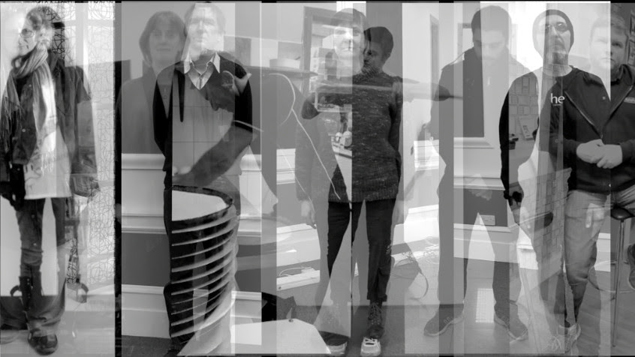
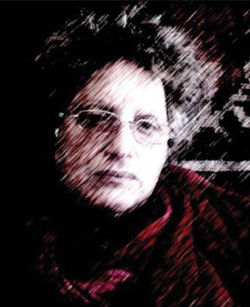 'The Hope'
'The Hope'
A short film by Narda Azaria Dalgleish
Friday 8:40 pm
“While conducting the interviews I was deeply moved, even surprised, by the people's daring openness.
Though I knew most of them since I begun my own training at the school 3 decades ago, I felt I was truly meeting them through an intimate facet I had not seen before.”
This shorter version of the film, 'The Hope', features an empirical account of mystical life today set against the backdrop of early 20th century archive footage of life in the Scottish Borders, portrait footage of 100 people, and narrations of her poetry, evocative of the soul in converse.
The insights in this slow meditative film, were selected from interviews with artists and contemplatives, most of whom are Chisholme Institute alumni. The sole direction given to the interviewees was to speak of anything at all that came directly from their years of practise and discovery of unity.
Narda is an experimental filmmaker whose work has been screened in film festivals locally, Nationally and Internationally. In her work, she draws on various personal and cultural sources to interface the visible world with the much neglected invisible realm of the interior, using her narrated poetry and vocals.
Dating back over 2500 years of ancestral exile in the Babylonian diaspora, the richness of their Semitic root languages and cultures inspires Narda's work not only as means for an artistic end, but very much a journey of surprises. www.nardadalgleish.com
S A T U R D A Y
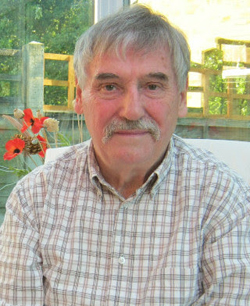 Science, Imagination and Metaphysics: Some Personal Reflections
Science, Imagination and Metaphysics: Some Personal Reflections
with Peter Coates, Saturday 9:00 – 10:15am
The talk will address the question of the status and role of the imagination while also addressing questions of scientific methodology, scientific progress and the nature of scientific truth.
Some of the issues raised will be briefly illustrated by Einstein and by the work of the largely self-taught mathematical genius Ramanujan, recently made into a film The Man who Knew Infinity. We will also examine Rom Harre’s and Thomas Kuhn’s notion that we have to "rid ourselves of a fundamental error – that people make about science – and with which scientists themselves are consumed – which is that science is the pursuit of truth and that scientist have some sort of special monopoly and special method by which they are going to arrive at this". We will also consider the idea that ‘self-knowledge’ is the ultimate affordance to Truth itself and the only key to unlocking the full potential of what it is to be human.
Peter Coates "My acquaintance with Ibn ‘Arabi came through a meeting with a drunken sailor who was on leave and about to go on a ten-day course at Sherborne House, Gloucestershire and he brought back with him a copy of the now famous Twenty-nine Pages which is a study of Ibn ‘Arabi’s extraordinary mystical philosophy. He asked, when he was in a more sober state, what I thought of it. I replied, ‘It’s rubbish’. I have, ever since, lived to eat my own words. And this is largely due to my participation in the education offered by the now named Chishome Institute and my meeting with the then consultant of the school, Bulent Rauf. My main publication is Ibn ‘Arabi and Modern Thought (Anqa Publications, third edition). I graduated from the University of Lancaster In Philosophy and Religious Studies, and researched at Keble College, University of Oxford for my M.Litt. Perhaps more importantly, I have had the privilege of being a co-Director at the Chisholme Institute for thirty-seven years or so, now retired. My last academic post was Senior Lecturer in Philosophy, Dept. of Psychology, University of Lincoln."
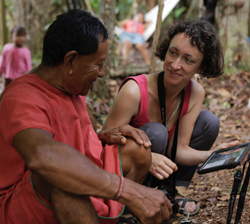 A meeting of tribes and minds: decolonising tech and cartography for the 21st century
A meeting of tribes and minds: decolonising tech and cartography for the 21st century
with Aliya Ryan, Saturday 10:45 – 11:45am
Maps have been used for centuries to justify wars, expropriate land and entrench inequalities, and our current understanding and reading of maps in the West is generally based upon conventions developed to suit these aims. However, in the Amazon and across the world marginalized communities are now using maps to tell other stories and demonstrate other realities. I shall discuss how indigenous people I work with in Ecuador are collaborating with an international tribe of open source hackers to build GIS tools that capitalize on recent developments in tech to create a new, anti-imperial cartography.
Aliya became interested in mapping whilst studying Social Anthropology at Cambridge: working with indigenous people in the Peruvian Amazon she noticed how maps were used by those in power to promote particular interests over the rights of those living on the land. Moving to Peru after her degree Aliya co-founded the NGO Shinai and helped develop participatory techniques in which maps, and the processes through which they were made, became tools for local empowerment and the defense of indigenous territory rights.
In September 2016 Aliya joined Digital Democracy, a US based organization developing open source GIS-based tools to work offline and in extreme environments, supporting the needs of marginalized communities to map their land and monitor environmental threats. She is working with communities in Ecuador piloting the new software and supporting their creation of paper and interactive online maps which communicate their relationship to land and resources, both for an international audience and to serve as a cultural repository for future generations.
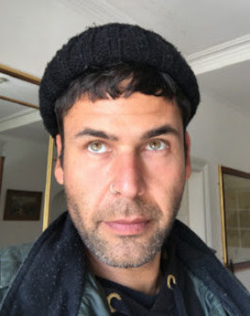 Hand-Head-Heart
Hand-Head-Heart
Initiatives for Cultural Bonding
• How can we bridge the cultural gaps brought by displacement and migration?
• What kind of activities and actions can be of use for community empowerment?
• Which tools can we access to start the necessary processes of awakening us from the illusion of separateness?
with Javier Rodriguez
Saturday 11:45 - 12:45pm
Javier will present and share anecdotes from his work with Standart Thinking, a collaborative project he has been running for the last 7 years. In his work, Javier has been using cultural commonalities such as Food, Textiles, and Sound among others, as tools to trigger community and cultural integration. A special focus throughout his practice was driven by the necessity to encourage practical skill sharing, hand work and experimentation.
The effects of such experimentations through the creative processes often resulted in the development of an inner urge to give form and expression to ideas as well as bring about individual transformation.
Javier Rodriguez was born in Caracas, Venezuela in 1975. He studied at F. Brandt School of Arts and left his natal city after finishing his BA to travel and further his education, work and practice. Javier studied Anthroposophy and continued his education at Steiner House in London and then in Visual Communication at RCA London.
Recent projects include: Hand-Head-Heart and Soil-Soul-Society educational programs for cultural integration supported by Norbotten Council, Sweden, Move, touch, taste, Friday Lates at V&A Museum, Delfina’s foundation Politic’s of food program, Survival Library at Lower Hewood Farm, Fieldtrips for Across RCA, Panel Discussion series Changing Perspectives on subversion, fields, education and senses at RCA, and collaborations with Agro-Ecological collective Tierra y Libertad in Venezuela.
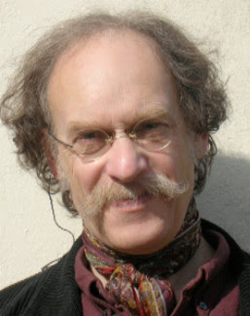 'Unjust laws exist':
'Unjust laws exist':
How should we respond?
Henry David Thoreau’s “Civil Disobedience”
with Robert-Louis Abrahamson
Saturday 2:30 - 4:00pm
In 1846 Henry David Thoreau went to prison for refusing to pay his taxes. Although the amount he owed was small and his imprisonment lasted only one night, Thoreau elevated this incident into a call for all honest people refuse support for an unjust government. In Thoreau’s case, the injustice was twofold: the American government’s sanctioning slavery in the South and its imperialist war against Mexico. His work inspired Gandhi and Martin Luther King in their campaigns against injustice, and can inspire each generation to respond to the injustice in their own world.
This talk will open up Thoreau’s celebrated essay on his resistance: “Civil Disobedience”. Thoreau’s ideas are radical and revolutionary, literally uncompromising. Are they convincing to us today? What do we do, where do we go, after listening to Thoreau’s call to our conscience?
Robert-Louis Abrahamson is Emeritus Professor of English, having lectured with the University of Maryland in the UK for thirty years. He has specialised in Scottish literature, and has lectured in the Bible as Literature, ancient and mediaeval myths, Dante’s Divine Comedy and the American Transcendentalists. He is an authority on his namesake Robert Louis Stevenson’s essays and fables, currently co-editing Stevenson’s essays in five volumes for Edinburgh University Press. His radio programme, Evening under Lamplight, on Cambridge Community Radio, invites listeners not just to hear but to attend to words and music, both traditional and modern, bridging literature with spiritual insight.
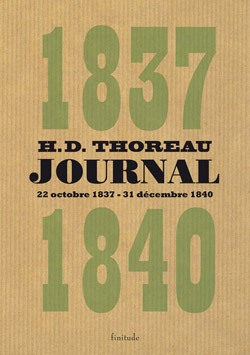 Writing Masterclass: Recording 'the visits of Truth' by writing a Journal
Writing Masterclass: Recording 'the visits of Truth' by writing a Journal
with Robert-Louis Abrahamson
Saturday 4:30 – 6:45pm
“What are you doing now?” Ralph Waldo Emerson asked his young friend Henry David Thoreau. “Do you keep a journal?” The question was the spark Thoreau needed to start his Journal, which, when published, ran to 14 volumes and became one of the classics of American environmental and spiritual literature. Keeping a journal, Emerson believed, was essential to the inner life. He advised all journal writers to “pay so much honor to the visits of Truth to your mind as to record those thoughts”.
This Masterclass will give us a chance to put Emerson’s advice into our own practice.
The Writing Masterclass will comprise:
• introduction, defining our aims and looking at examples from Emerson’s and Thoreau’s journals
• individual exploration in the house or grounds of Chisholme to welcome “the visits of Truth”
• writing to pay honour to the visit of Truth
• sharing the experience with others in the workshop
S A T U R D A Y N I G H T
 Arabian Nights – Belly Dance Extravaganza
Arabian Nights – Belly Dance Extravaganza
with Kerimeh Okan and Orchestra
Saturday 8:30pm
Arabian Nights will open with a classical Egyptian song, performed to by Oriental dancer Kerimeh. As the set progresses, Kerimeh will dance along with Musicians to an eclectic fusion of instruments and songs from Turkey, Egypt and Persia, with a hint of Flamenco.
Kerimeh is of Egyptian and Turkish descent and comes from a family of musicians. An award winning performer she has danced internationally from Turkey to Brazil, performed at the Fringe festival, Cruise ships, concert halls, appeared in Film/Tv and entertained at many weddings and henna events.
Kerimeh has a unique style, with her mesmerising shimmies and impressive drum solos. Kerimeh will soon have you up dancing the rest of the night. Yalla!
Florian Schmidinger
is a musician and drummer/percussionist who has played in various styles and bands, in Germany, Greece, France, India and Scotland.
Over ten years ago he joined a Middle Eastern music group and discovered his love for this kind of music.
Florian has worked on different music recordings projects as multi instrumentalist. Three years ago he started playing the flute followed by the ney. "Deep interior sound and music can heal and unite our hearts in the light of meditation."
Since the age of 9, Ali Rahmani has played the middle eastern percussions such as Tombak, Darbuka, and Daf and trained with top percussion masters in Iran. He has conducted various rhythm workshops for beginners and professional level percussion students as well as belly dancers.
Ali joined various multi-ethnic bands in Italy, recorded two albums and performed many concerts in different cities in Italy. Since moving to Scotland he has performed extensively in Edinburgh and Dundee with Scottish and Iranian professional musicians.
Mohammed Nafee is an international singer and Oud player who leads the Edinburgh based 'Babylon Arabic Band', consisting of seven musicians. Their music originates from Iraq, Egypt, Syria and Lebanon and they have been performing in the U.K. and at international festivals since 2002.
Omar Afif is a Gnawa musician originally from Essaouira on the Moroccan Atlantic coast. He is a soloist singer who plays a Guembri, a three-stringed bass instrument. He collaborates with other musicians creating fusions between Gnawa music, Scottish folk and much more. Gnawa is a traditional North African folk music that combines ritual poetry with traditional music and dancing, using Berber and Arabic rhythms from ancient African Islamic culture.
S U N D A Y
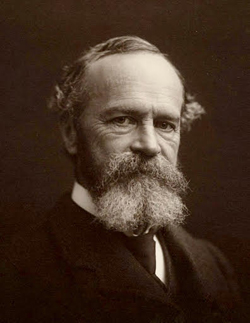 Bridges to Human Potential:
Bridges to Human Potential:
Reflections on the Mystical
with Peter Coates, Sunday 9:00 – 10:15am
Concerning his classic book, "The Varieties of Religious Experience", William James wrote: "The mother sea and fountain-head of all religions lie in the mystical experiences of the individual which belong to a region deeper, and more vital and practical, than that which the intellect inhabits".
"Recently I have had reason to re-visit James’s Gifford Lectures which, of course, themselves constitute the entire content of 'The Varieties'. Some considerable time ago I presented a paper on William James’s 'The Varieties of Religious Experience' to the Annual General Meeting of the Ibn ‘Arabi Society held in the Ashmolean Museum in Oxford. To this day I cannot remember any of the specific details of that paper of which unfortunately I did not keep a copy. But what I do remember clearly is that it drew on important parallels of content and focus which exist between the twelfth-century writings of Ibn ‘Arabi and the twentieth-century Gifford Lectures of William James." ~ Peter Coates
Muhyiddin Ibn ‘Arabi (1165-1240) is "one of the world’s great spiritual teachers. Ibn 'Arabi was born in Murcia, Al-Andalus, in 1165 and his writings had an immense impact throughout the Islamic world and beyond. The universal ideas underlying his thought are of immediate relevance today."
William James (1842-1910) was an American psychologist and philosopher who is often regarded as the founder of modern psychology in the USA. Although psychology in the twentieth century frequently ignored or discounted mystical experience, James himself was convinced of its importance.
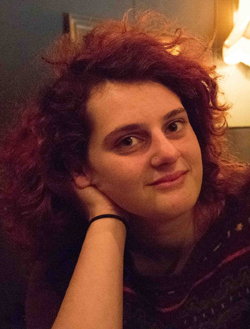 We are all made of Stars: From the Big Bang to the Heat Death of the Universe
We are all made of Stars: From the Big Bang to the Heat Death of the Universe
with Hannah Suzanne Dalgleish
Sunday 10:45 – 11:45am
Astronomy is one of the most ancient sciences known to humankind. Ever since we could consciously perceive the night sky, we questioned our reality and revelled in its beauty. Yet the most remarkable discoveries of the Universe and it's origins were made only in the past 100 years.
These discoveries begin at the creation of the Universe: the Big Bang, 13.8 billions years ago. Ever since, the Universe has been continually expanding and cooling down. Initially, atomic particles came together to create elements like hydrogen and helium. This allowed for the formation of much larger objects, such as stars, and even galaxies. Stars not only provide the energy needed to sustain life, but also create heavier elements, like carbon, without which life would never exist. And what does the future hold, as the Universe continues to expand? There are a few possibilities, from Heat Death to the Big Bounce, but only time will tell.
Hannah is currently studying a PhD in Astrophysics at Liverpool John Moores University. Her research experience has predominantly been focused on stars, and currently she is looking at how high-mass stars form in the Milky Way (stars that are at least ten times bigger than our Sun). She has studied in several different countries all over the world, including Scotland, Canada, Austria, Italy and Serbia. The rest of her time is spent doing outreach and travelling, of which one of her main passions is the International Astronomical Youth Camp, which brings people together from every corner of the world.
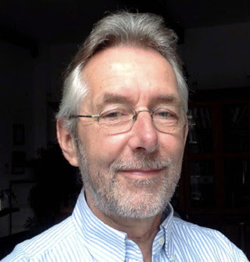 Global Time and Human Time: Conflict, Confusion or Harmony?
Global Time and Human Time: Conflict, Confusion or Harmony?
with Richard Gault, Sunday 11:45 – 12:45am
Modern lives, certainly from the age of industrialisation, have been largely governed by the clock and weekly schedules rather than the rhythms of the natural daily and annual cycles. In this we differ from pre-modern societies. Does this matter? And if it does, is this a lessening concern? In many ways the newest technology is freeing us from time dependency. The information age offers liberation from timetables. We can watch TV programmes when we wish, for example. But is this new freedom to be welcomed or does it raise fresh worries?
Richard has worked at universities in Scotland, Ireland, Holland and Germany, where he has taught and researched a variety of subjects including the history and philosophy of science; the history, sociology and philosophy of technology, and decision methodology. Since his retirement from the Amsterdam University of Applied Science in 2015, he has taken up the position of Principal of the Chisholme Institute, a school of esoteric education near Hawick in the Scottish Borders.
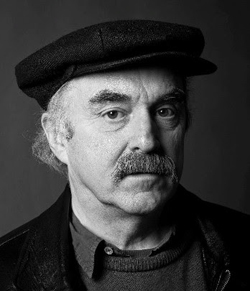 Who is we? - A Conversation
Who is we? - A Conversation
on the Origin of Human Identity
with Christopher Ryan, Sunday 2:30 – 4:00pm
The audience will be invited to a conversation on the origin of identity as a means to developing a reality-based appreciation of and participation through witnessing in the revelation that we call the world. A conversation based on the vision in manifestation and the unseen, of a single, unique existence, both as a unity of one and a unity of a multiplicity.
Christopher became involved with the Beshara Centre at Swyre Farm in 1971 and at Chisholme House since 1973, serving as a director for 37 years. He has been kitchen manager at Chisholme where he has also supervised and correlated on Beshara courses. He is a cook, a writer and since 2005 a partner in Damascus Drum Cafe and Books in Hawick.
For Timetable, Costs and Booking click here...
For more information, email info@chisholme.org
Tel +44 (0)1450 880215
Receive our newsletter
The Six-month Course of Intensive Esoteric Education
1 October 2024–24 March 2025
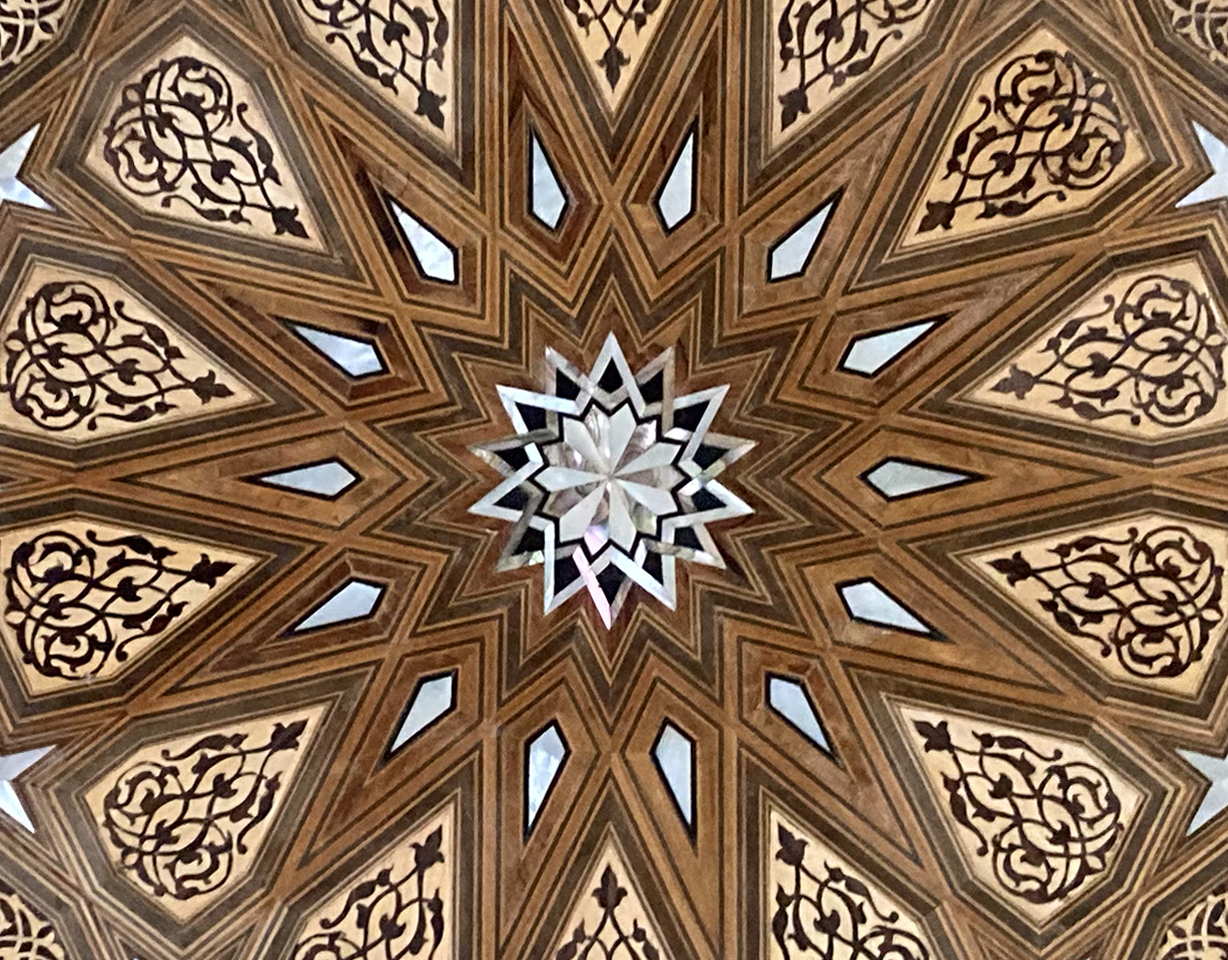
VIEW
RELATED EVENTS WORLDWIDE
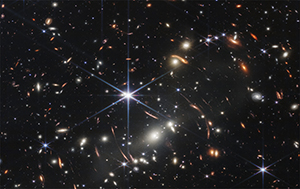 Visit the BESHARA website for a comprehensive series
Visit the BESHARA website for a comprehensive series
of online and in-person study events and courses.
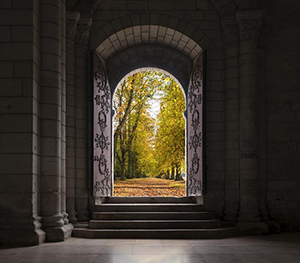
Love and Knowledge in the Light of Unity:
the Direct Path
A Beshara Foundation Course
 Browse Beshara Magazine online which considers unity, inclusion and interconnectedness in all areas of contemporary thought, from spirituality to science, economics and the arts.
Browse Beshara Magazine online which considers unity, inclusion and interconnectedness in all areas of contemporary thought, from spirituality to science, economics and the arts.
Preparations for this year
A visual taste and some of the music from the September 2023 Gathering at Chisholme